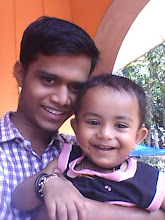MANAGEMENT AND MANAGERIAL ROLES
Management
is the process of designing and maintaining an environment in which
individuals, working together in groups, efficiently accomplish selected aims.
1.
As managers, people carry out the
managerial functions of planning, organizing, staffing, leading and
controlling.
2.
Management applies to any kind of
organization
3.
It applies to managers at all levels of
organization
4.
The aim of all managers is the same: to
create a surplus
5.
Managing is concerned with productivity;
this implies efficiency and effectiveness.
MANEGERIAL
ROLES
1.
Interpersonal Roles
2.
Informational Roles
3.
Decisional Roles
INTERPERSONAL
ROLES
1. Figurehead
: representing the organization in formal matters; serving as a symbol of the
organization
2. Liaison
: interacting with peers and people outside the organization; developing
external links
3. Leader
: activities concerned with subordinates; motivating, communicating, staffing,
directing
INFORMATIONAL
ROLES
1. Monitor:
receiving and collecting information; utilizing the channels through which
information comes
2. Disseminator:
transmitting information within the orgn
3. Spokesman:
transmitting information to people outside the organization
DECISIONAL
ROLES
1. Entrepreneur:
introducing change; initiating projects to improve the orgn.
2. Disturbance
Handler: taking charge when the orgn is threatened
3. Resource
Allocator: responsible for making or approving all
significant organizational decisions







